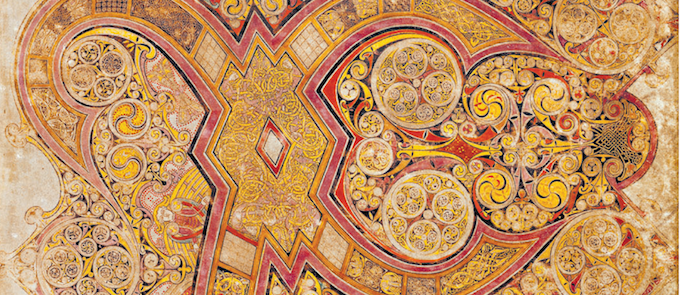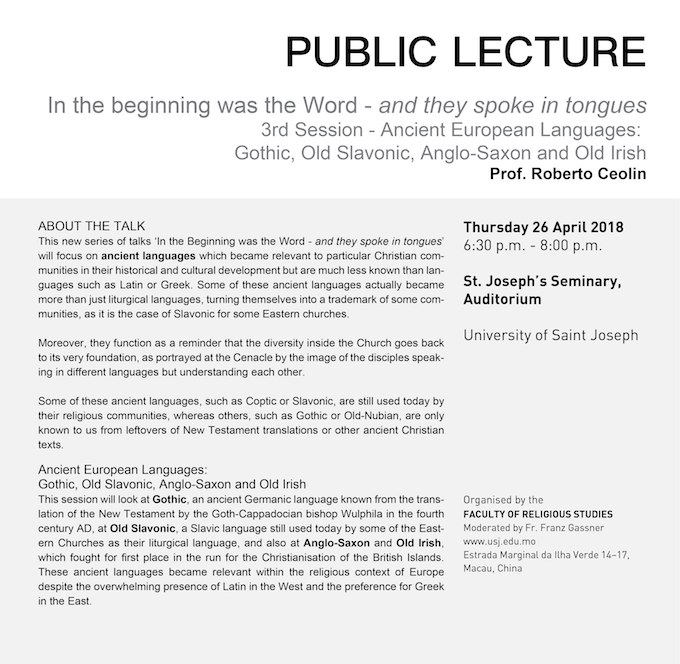Public Lecture: In the beginning was the Word – and they spoke in tongues 3rd Session – Ancient European Languages: Gothic, Old Slavonic, Anglo-Saxon and Old Irish

Public Lecture: In the beginning was the Word - and they spoke in tongues 3rd Session - Ancient European Languages: Gothic, Old Slavonic, Anglo-Saxon and Old Irish
26
Apr
Public Lecture: In the beginning was the Word – and they spoke in tongues 3rd Session – Ancient European Languages: Gothic, Old Slavonic, Anglo-Saxon and Old Irish by FRS on 26th April 2018

ABOUT THE TALK
This new series of talks ‘In the Beginning was the Word – and they spoke in tongues’ will focus on ancient languages which became relevant to particular Christian communities in their historical and cultural development but are much less known than languages such as Latin or Greek. Some of these ancient languages actually became more than just liturgical languages, turning themselves into a trademark of some communities, as it is the case of Slavonic for some Eastern churches. Moreover, they function as a reminder that the diversity inside the Church goes back to its very foundation, as portrayed at the Cenacle by the image of the disciples speaking in different languages but understanding each other. Some of these ancient languages, such as Coptic or Slavonic, are still used today by their religious communities, whereas others, such as Gothic or Old-Nubian, are only known to us from leftovers of New Testament translations or other ancient Christian texts.
Ancient European Languages: Gothic, Old Slavonic, Anglo-Saxon and Old Irish
This session will look at Gothic, an ancient Germanic language known from the translation of the New Testament by the Goth-Cappadocian bishop Wulphila in the fourth century AD, at Old Slavonic, a Slavic language still used today by some of the Eastern Churches as their liturgical language, and also at Anglo-Saxon and Old Irish, which fought for first place in the run for the Christianisation of the British Islands. These ancient languages became relevant within the religious context of Europe despite the overwhelming presence of Latin in the West and the preference for Greek in the East.









